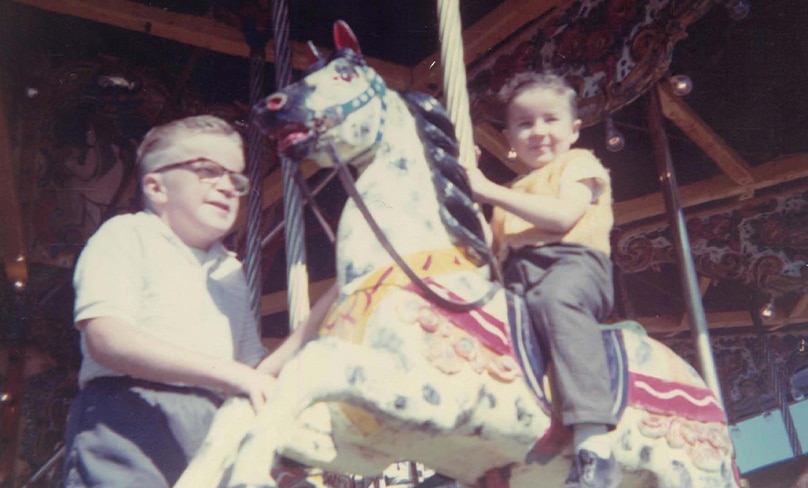
Growing up, I was acutely aware of people’s judgement of difference.
My older brother Jim was disabled. Sadly, his physical challenges drew the attention and sometimes ridicule of others, especially young people.
We were both aware of the stares that he attracted. We were aware too of the way in which people avoided eye contact, and occasionally their desire to keep a safe distance from him.
They were uncomfortable with his difference.
To me there was never a difference. Jim was a protective older brother who spent hours with me playing board games and backyard football and cricket. We were inseparable.
Despite the closeness of our relationship I was never able to protect him from the hurt he suffered. I was a voyeur to his ongoing emotional pain. It hurt me greatly at the time, and it still does.
Jim of course was not alone in his experience. So many others are also judged on account of their appearance.
People with disabilities often experience social isolation. Sadly, this is often not confined to a particular time of life.
It is all too commonplace in local neighbourhoods, schools and workplaces. And it can even be found in places of recreation and enjoyment.
For many disabled people, the judgement of their difference seems perennial.
There are others of course in our community who share a similar experience.
Since moving to Sydney many years ago, I have been actively involved in a range of social outreach projects. These have been incredibly rewarding, none more so than my time with the homeless.
What started as occasional volunteer work soon became a genuine commitment to make a difference in the lives of others.
Such was its impact on me, that I enthusiastically encouraged my students to be involved.
Catholic parishes, agencies and schools do wonderful work in their outreach to the homeless.
Notwithstanding this, it does not change the way that many within our community see and judge those who live on the streets.
A few years ago, when preparing for the Vinnies CEO Sleepout, I chatted with Terry, who had been in and out of shelters for over two decades, and who was dependent upon the night patrol vans—both for food and companionship.
It was apparent that Terry sought out the company of others, as much as he did the opportunity for a meal.
When asked about the worst aspect of homelessness, he said, “When people look through you, or beyond you. It is as if they don’t even see you.”
Many people are uncomfortable with the points of difference that they see in homeless people.
Volunteerism can help remedy this because we spend our time with the people we seek to help. We come to know them.
When undertaking social outreach, we have an opportunity to genuinely connect with others.
We should embrace the differences that we encounter and treat people with empathy and compassion.
Like Jesus, we too will experience the vulnerability of humanity. People suffering in one way or another.
We should not be detached from or indifferent to their needs. We should reach out to them. To not enjoy the company and friendship of others robs us of a great deal.
The great English poet John Donne wrote, “No man is an island, entire of itself.”
He acknowledged our innermost human need for connection with others. We are not meant to be isolated or alone.
Rather, we find meaning, purpose and happiness in living our lives with others, especially our family and friends.
In our humanity, we yearn to be together, not apart. We are social beings and we express this through the development of different relationships.
May our relationships show that we are comfortable with difference.
